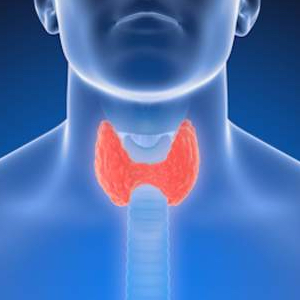This 162 000 plus person retrospective (looking backwards) cohort (at a group) study answers a long standing medical question about “optimal” thyroid function and provides reassuring evidence that the functional medicine reference ranges for TSH of around 2.0 mlU/L clearly reduces many important health related outcomes, including all cause mortality, atrial fibrillation, ischaemic heart disease, heart failure, stroke/transient ischaemic attack, fractures, and frailty risks.
Without being insulting, this is a perfect example of why it is important to consider a more integrative or functional medicine approach to your health care as the average medical professional will typically only consider TSH to be a concern when it is outside the standard reference range and often greater than 10 mlU/L, which is exactly what this large study says can cause clear serious long term health concerns.
Although, it is important to note that not everyone has a thyroid problem, it is fairly common to see suboptimal or subclinical hypothyroidism, which may include obvious symptoms like slow metabolism, sluggish bowel function, poor circulation (hair loss and fatigue), slow heart rate and water retention. Typically subclinical or functional hypothyroidism is the result of stress, however autoimmune causes should be ruled out, which is why it is important to get a complete thyroid panel including TSH, free T3, free T4, reverse T3, TPO antibodies, and anti-thyroglobulin antibodies.
One final note is that life long medication is not always the answer. One needs to consider gastrointestinal microbiology, food intolerance and stress/sex hormone imbalances as being a part of the solution for Hashimoto’s hypothyroidism and stress reduction to address functional hypothyroid concerns.
Thayakaran R, Adderley NJ, Sainsbury C, et al. Thyroid replacement therapy, thyroid stimulating hormone concentrations, and long term health outcomes in patients with hypothyroidism: longitudinal study. BMJ. 2019 Sep 3;366:l4892. doi: 10.1136/bmj.l4892. (Original study)
Abstract
OBJECTIVE: To explore whether thyroid stimulating hormone (TSH) concentration in patients with a diagnosis of hypothyroidism is associated with increased all cause mortality and a higher risk of cardiovascular disease and fractures.
DESIGN: Retrospective cohort study.
SETTING: The Health Improvement Network (THIN), a database of electronic patient records from UK primary care.
PARTICIPANTS: Adult patients with incident hypothyroidism from 1 January 1995 to 31 December 2017.
EXPOSURE: TSH concentration in patients with hypothyroidism.
MAIN OUTCOME MEASURES: Ischaemic heart disease, heart failure, stroke/transient ischaemic attack, atrial fibrillation, any fractures, fragility fractures, and mortality. Longitudinal TSH measurements from diagnosis to outcomes, study end, or loss to follow-up were collected. An extended Cox proportional hazards model with TSH considered as a time varying covariate was fitted for each outcome.
RESULTS: 162 369 patients with hypothyroidism and 863 072 TSH measurements were included in the analysis. Compared with the reference TSH category (2-2.5 mIU/L), risk of ischaemic heart disease and heart failure increased at high TSH concentrations (>10 mIU/L) (hazard ratio 1.18 (95% confidence interval 1.02 to 1.38; P=0.03) and 1.42 (1.21 to 1.67; P<0.001), respectively). A protective effect for heart failure was seen at low TSH concentrations (hazard ratio 0.79 (0.64 to 0.99; P=0.04) for TSH <0.1 mIU/L and 0.76 (0.62 to 0.92; P=0.006) for 0.1-0.4 mIU/L). Increased mortality was observed in both the lowest and highest TSH categories (hazard ratio 1.18 (1.08 to 1.28; P<0.001), 1.29 (1.22 to 1.36; P<0.001), and 2.21 (2.07 to 2.36; P<0.001) for TSH <0.1 mIU/L, 4-10 mIU/L, and >10 mIU/L. An increase in the risk of fragility fractures was observed in patients in the highest TSH category (>10 mIU/L) (hazard ratio 1.15 (1.01 to 1.31; P=0.03)).
CONCLUSIONS: In patients with a diagnosis of hypothyroidism, no evidence was found to suggest a clinically meaningful difference in the pattern of long term health outcomes (all cause mortality, atrial fibrillation, ischaemic heart disease, heart failure, stroke/transient ischaemic attack, fractures) when TSH concentrations were within recommended normal limits. Evidence was found for adverse health outcomes when TSH concentration is outside this range, particularly above the upper reference value.
